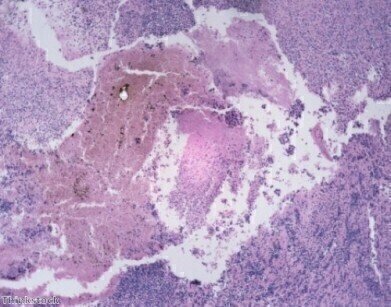-
 Skin cancer trial results 'exciting'
Skin cancer trial results 'exciting'
News
Skin cancer trial results 'exciting'
Jun 04 2014
Two international trials have led to "exciting and striking" results and could significantly help patients with advanced melanoma, which are both designed to help the immune system recognise and target tumours.
The findings, announced at the American Society of Clinical Oncology conference held in Chicago, used experimental drugs pembrolizumab and nivolumab to block the biological pathway, which cancers use to hide from the immune system.
Some 411 patients were included in the pembrolizumab trials and two-thirds (69 per cent) survived at least 12 months. The drug, which used to be called MK-3475, is also being tested against other types of tumour to block similar pathways.
Dr David Chao, consultant oncologist at the Royal Free London NHS Foundation Trust, is conducting trials in both melanoma and lung cancer patients.
He said that it appeared to have the "potential to be a paradigm shift for cancer therapy".
One of his patients, 64-year-old Warwick Steele, has been receiving regular doses of pembrolizumab since October. Before his treatment started, Mr Steele could barely walk as his advanced skin cancer has spread to his lungs.
However, after infusions of pembrolizumab, his condition has significantly improved and scans of his lungs reveal that, with just three infusions, the drug appears to have completely cleared cancer from his lung.
Nivolumab was tested in combination with an existing and licensed immunotherapy - ipilimumab. The trial of 53 patients found that, after treatment, 85 per cent lived for one year and 79 per cent survived for 24 months.
John Wagstaff, professor of medical oncology at Swansea College of Medicine, is part of a wider trial for the two drugs and called the findings a "breakthrough in treating melanoma".
He told the BBC that as the trial was "blinded", it's still unclear what treatments the patients are getting, but there have been some "spectacular responses".
Advanced melanoma, which can spread to other organs, has proved difficult to treat and these findings could offer new solutions for treatment. Until recently, the average survival was around six months but, although the new drugs offer hope, they did have side effects and would need further testing.
Much larger Phase III trials are now taking place in hospitals around the UK.
Digital Edition
Lab Asia Dec 2025
December 2025
Chromatography Articles- Cutting-edge sample preparation tools help laboratories to stay ahead of the curveMass Spectrometry & Spectroscopy Articles- Unlocking the complexity of metabolomics: Pushi...
View all digital editions
Events
Jan 21 2026 Tokyo, Japan
Jan 28 2026 Tokyo, Japan
Jan 29 2026 New Delhi, India
Feb 07 2026 Boston, MA, USA
Asia Pharma Expo/Asia Lab Expo
Feb 12 2026 Dhaka, Bangladesh


















